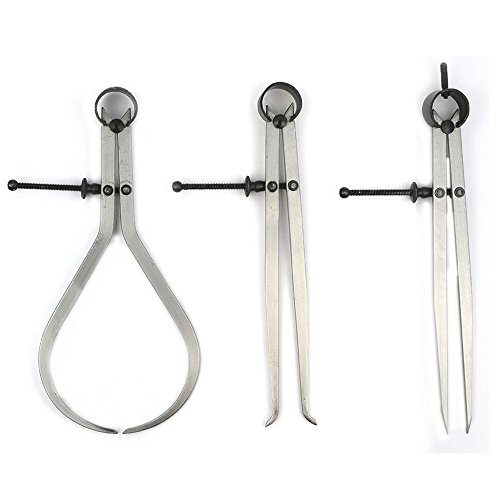Not good. I have both old age and decrepitude. I am 99 7/8% convinced to try the 78. It is a lighter product with less lawyer speak than the 77. The $60 dollar price tag is a bummer however. Another supplier I use has a product called Trico Tri-Cool TC1. No idea what is in that. The advertising bumf claims it is the best thing since neat Scotch but I suspect the fine print on the label will caution about getting it anywhere near a living breathing monkey like they all do.
You are using an out of date browser. It may not display this or other websites correctly.
You should upgrade or use an alternative browser.
You should upgrade or use an alternative browser.
Great coolant except its toxic
- Thread starter Shopgeezer
- Start date

Help Support Home Model Engine Machinist Forum:
This site may earn a commission from merchant affiliate
links, including eBay, Amazon, and others.
GrahamJTaylor49
Well-Known Member
- Joined
- Aug 18, 2012
- Messages
- 81
- Reaction score
- 43
All this talk about misting coolant onto the component that is being machined, has anyone thought about breathing in this material. ?
I supply, service and repair industrial air compressors and one of the greatest problems I have is the oil / air cooler radiators getting clogged up with the water miscible coolants that we now use. The cooling fans pull the coolant in the air through the radiators where the water evaporates and the oil turns to a gell and clogs the rad. The first thing the client knows is when the compressor shuts down due to overheating. I then have to remove the rad and get it de-greased and hot washed to remove the muck so that the compressor will run without the increase in temperature.
My point is just what are we breathing in and what damage is this coolant doing to our lungs ? In a modern manufacturing facility with numerous CNC machines there is an enormous number of these machines and all of them spraying quantities of coolant into the air for us to breath. Are we going to have the same type of problems that the coal miners and asbestos workers ended up having years ago.?
I supply, service and repair industrial air compressors and one of the greatest problems I have is the oil / air cooler radiators getting clogged up with the water miscible coolants that we now use. The cooling fans pull the coolant in the air through the radiators where the water evaporates and the oil turns to a gell and clogs the rad. The first thing the client knows is when the compressor shuts down due to overheating. I then have to remove the rad and get it de-greased and hot washed to remove the muck so that the compressor will run without the increase in temperature.
My point is just what are we breathing in and what damage is this coolant doing to our lungs ? In a modern manufacturing facility with numerous CNC machines there is an enormous number of these machines and all of them spraying quantities of coolant into the air for us to breath. Are we going to have the same type of problems that the coal miners and asbestos workers ended up having years ago.?
goldstar31
Well-Known Member
All this talk about misting coolant onto the component that is being machined, has anyone thought about breathing in this material. ?
Are we going to have the same type of problems that the coal miners and asbestos workers ended up having years ago.?
I agree with Graham. I've been fortunate to survive(just) through all these so called safe practices- which were not!
BaronJ
Grumpy Old Git.
Hi Graham,
Quite possibly ! It took 30 or 40 years for it to be a recognised problem.
Are we going to have the same type of problems that the coal miners and asbestos workers ended up having years ago.?
Quite possibly ! It took 30 or 40 years for it to be a recognised problem.
We've been using soluble oils for a hundred years by now. I don't think they are really recognised as deadly chemicals, since they are pretty bio-compatible to begin with. Professionally I am using a soy bean oil based lube. One thing amateurs tend to do is run cutting fluids too thick - 20..30 parts to 1 is entirely reasonable. Grinding fluids run at 50:1 or thinner.
I do wonder how much machining one does to be "coated head to foot" in coolant in a home machine shop, yet not have to buy coolant in 55 gallon drums, let alone 1 gallon being sufficient any given job.
Mist filters and exhaust systems exist if this is truly a concern. I'd also be curious about other aspects of daily life which are of much more relevant.
Mist filters and exhaust systems exist if this is truly a concern. I'd also be curious about other aspects of daily life which are of much more relevant.

$519.19
$699.00
FoxAlien Masuter Pro CNC Router Machine, Upgraded 3-Axis Engraving All-Metal Milling Machine for Wood Acrylic MDF Nylon Carving Cutting
FoxAlien Official

$24.99
$34.99
Bowl Sander Tool Kit w/Dual Bearing Head & Hardwood Handle | 42PC Wood Sander Set | 2" Hook & Loop Sanding Disc Sandpaper Assortment | 1/4" Mandrel Bowl Sander for Woodturning | Wood Lathe Tools
Peachtree Woodworking Supply Inc

$94.99
$109.99
AHS Woodmaster 4400 Maintenance Kit for Outdoor Wood Boiler Treatment
Alternative Heating & Supplies
![DreamPlan Home Design and Landscaping Software Free for Windows [PC Download]](https://m.media-amazon.com/images/I/51kvZH2dVLL._SL500_.jpg)
$0.00
DreamPlan Home Design and Landscaping Software Free for Windows [PC Download]
Amazon.com Services LLC

$39.58
$49.99
Becker CAD 12 3D - professional CAD software for 2D + 3D design and modelling - for 3 PCs - 100% compatible with AutoCAD
momox Shop

$39.99
$49.99
Sunnytech Low Temperature Stirling Engine Motor Steam Heat Education Model Toy Kit For mechanical skills (LT001)
stirlingtechonline

$45.99
Sunnytech Mini Hot Air Stirling Engine Motor Model Educational Toy Kits Electricity HA001
stirlingtechonline

$89.99
Outdoor Wood Boiler Water Treatment Rust Inhibitor- AmTech 300 & Test Kit
Alternative Heating & Supplies

$12.56
$39.95
Complete Plans for Building Horse Barns Big and Small(3rd Edition)
ThriftBooks-Atlanta

$99.99
AHS Outdoor Wood Boiler Yearly Maintenance Kit with Water Treatment - ProTech 300 & Test Kit
Alternative Heating & Supplies
I'm senior research engineer for our company R+D operation, and the boss bought me a machine shop as a joining gift  We push a LOT of work through my shop, not as much as a production shop, probably about as much as a model eng. shop who is getting a lot of hassle from their other half to get a proper life and stop messing in the shop all day.
We push a LOT of work through my shop, not as much as a production shop, probably about as much as a model eng. shop who is getting a lot of hassle from their other half to get a proper life and stop messing in the shop all day.
In 5 years, I haven't quite finished a 5 gallon pail of coolant.
I stopped using flood coolant, and started using a shop built fog buster. Now I get better chip evacuation, and no mist around my tools at all.
In 5 years, I haven't quite finished a 5 gallon pail of coolant.
I stopped using flood coolant, and started using a shop built fog buster. Now I get better chip evacuation, and no mist around my tools at all.
Spraying coolant from a squirt bottle onto rapidly spinning work usually results in more coolant on me than the workpiece. I have a particular talent that way. My few excursions into fiberglass work resulted in me wearing a lot more cloth and resin than the model I was attempting to repair. Ditto any sort of glue. While misting spray is very dilute, it will be impossible not to breath it unless a respirator is worn. Many happy hours in the shop making chips and scrap would result in a regular intake of chemical, so it is probably worth a bit of research to see what impacts that may have. While a Guiness and a glass of scotch each night is probably in reality toxic too, I much prefer that method of poisoning myself than Poly(ethylene glycol-ran-propylene glycol) monobutyl ether.
GrahamJTaylor49
Well-Known Member
- Joined
- Aug 18, 2012
- Messages
- 81
- Reaction score
- 43
With all this talk about the toxicity of coolants I think we might be more concerned about the micro fibres that we are breathing in from our synthetic clothing. With the enormous amount of waste plastic around these we, as engineers, must be able to find a way of turning it back into oil and then use it for coolant.
And then turn the coolant back into plastic! We can stop fracking and recycle everything.
gunner312
gunner312
Excellent Idea, I seem to remember a YouTube video that shows a guy that has invented a way to reprocess plastic into gasoline. It was popular a few years ago. Wonder what has happened with that?
- Joined
- Dec 16, 2013
- Messages
- 29
- Reaction score
- 15
Wouldn't worry to much, none of us will leave this planet alive.
goldstar31
Well-Known Member
Wouldn't worry to much, none of us will leave this planet alive.
I'll bet that you were dying to tell us!
- Joined
- Dec 16, 2013
- Messages
- 29
- Reaction score
- 15
Good on yer Goldstar31, at least you got a laugh from this old fart.
















































